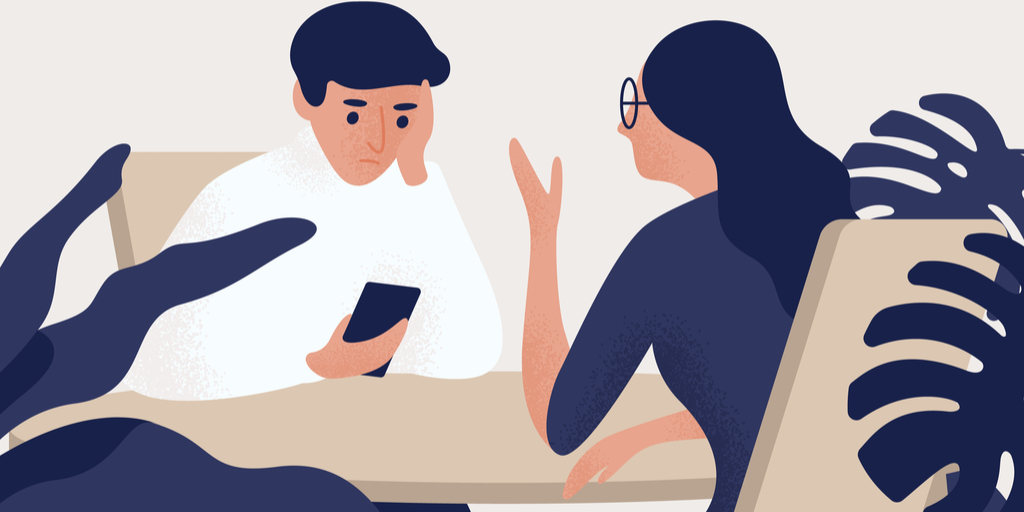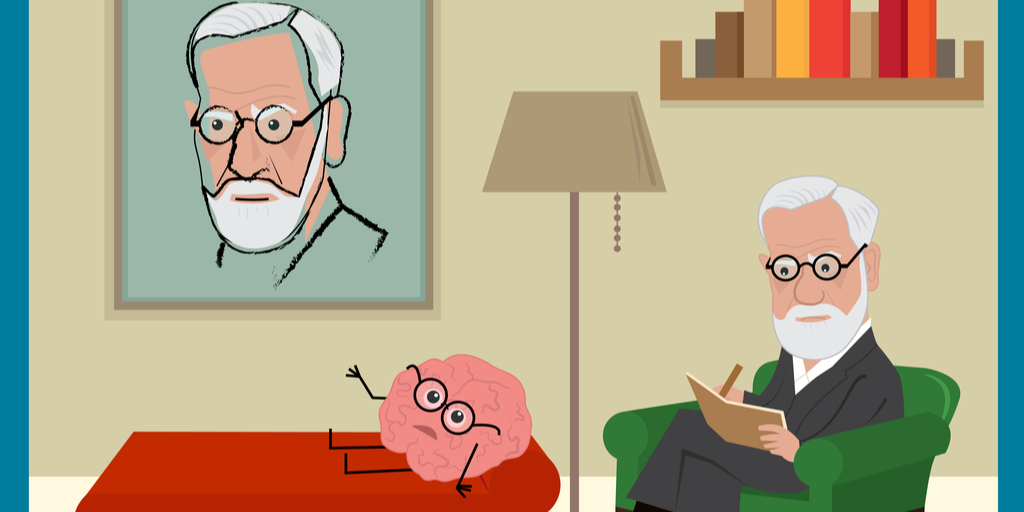
We’re an affiliate!
We hope you love the books we recommend! Just so you know, we may collect a share of sales or other compensation from the links on this page. Thank you very much if you use our links, we really appreciate it.
Long story short, “the Courage to be Disliked” is based on psychologist Alfred Adler’s principles of human psychology where we are fully responsible for our own happiness despite what past traumas an individual had experienced.
The format is a back and forth dialogue between a philosopher and a student regarding how we have the power to choose our own direction in life, instead of letting the external environment determine our fate.
Answer Section:
One of the key questions we can reflect from this book is:
How can you be comfortable with YOURSELF?
To answer this, Adler psychology focuses on these principles to be comfortable with yourself:
- Make yourself the number one priority
- Stop being controlled by our past
- Separate our tasks
- Focus on solving interpersonal problems
- Take control of your own future
We tend to make the world more complicated than it is by allowing our external environments determine our life outcomes. As a result, this makes us believe that our destiny is pre-determined which harms our confidence and belief in ourselves.
Without this belief, we are left to forever remain uncomfortable with ourselves.
On the other hand under Adlerian psychology, this concept sparks the path of self-belief and control as happiness can be created and formed with our own choices and decisions.
FOR THOSE WHO DON’T KNOW
Ichiro Kishimi and Fumitake Koga are an author tandem who are advocates of Adlerian psychology. To further this movement, they write publications and teach the principles of Adlerian psychology to the Japanese Society of Adlerian Psychology.
Before we dive into these principles, let’s define what Adlerian psychology is about.
What is Adlerian psychology?

In a nutshell, Adlerian psychology was developed by Alfred Adler, one of the three key figureheads in the development of psychology alongside Sigmund Freud and Carl Jung.
Adler’s view on psychology is primarily focused on how the individual is motivated by an obsession of being superior in relation to other members, yet at the same time, despite our individualistic nature, we cannot be separated from society as we are all interconnected.
According to Adler’s theory, while we are naturally inclined to strive towards our own goals and ambitions, those contributions are still part of the collective society as a whole.
Now diving into the principles from the Courage to be Disliked!
Make yourself the number one priority:
As selfish as it may sound, being comfortable with yourself all boils down to making yourself the number one priority.
Adler’s view of individual psychology states that every moment is a choice that we make, independent of any past trauma or event that leads us up to a certain point in time. We are accountable for the results of those choices, as those outcome and how we react to them are completely dependent on ourselves.
Since those events and outcomes are independent of each other, by making ourselves a priority, we have the power to CHOOSE what we want to life. So instead of reflecting on past regrets and causations, we must focus on MOVING FORWARD to more important things such as living a life that we want to live.
This concept is based on Teleology, as it is
the study of the purpose of a given phenomenon, rather than its causes.
By studying the purpose of our actions as opposed to studying its cause, Teleology is the foundation of focusing on the results we want to achieve.
Being controlled by the past:

Putting it bluntly, our past DOES NOT control our future.
As Kishimi and Koga put it:
If the past determined everything and couldn’t be changed, we would no longer be able to take effective steps forward in our lives.
Having the mentality of letting the past control our future hinders our development as it makes us carry an unnecessary burden that distracts us towards the future. By carrying the burdens of the past, we constantly cling to our faults or misfortunes instead of approaching it as a way to learn from these failures to propel us forward.
A common scenario where we tend to focus on the past is by comparing certain upbringings or resources to others who are more fortunate. This is a mentality where we let our pasts determine our outcomes as only “certain people, with certain upbringings, can achieve certain accomplishments”.
That goes against anyone who has ever achieved great accomplishments despite the setbacks and circumstances they have faced.
Instead by FREEING yourself from the past, whatever has occurred in your life up to a certain point would not weigh how you determine your own future. It is totally up to you in terms of how you live your life and make your own decisions.
The Separation of tasks:
When we reflect on our lives, we realize that Life is a series of moments.
From the experiences of our childhood to our definitive decisions that lead to our adult life, it is ultimately an accumulation of experiences from moment to moment.
Under Adlerian psychology, these moments are illustrated as a “Series of Dots” while in Freudian psychology, the moments are reflected as a linear curve.
When you view life as a series of dots, each moment is independent of each other moment. This shows how the moments in life operate as SEPARATE tasks from one another.
For example, if you had a bad day at work and brought an angry mood to your spouse or partner because of your experiences at work. Adlerian psychology explains that having a bad day at work is INDEPENDENT of lashing out in an angry mood to your partner.
This means that if you are angry and lash out at your partner, it is because you internally have made the choice of doing that despite what had happened earlier at work.
While on the other hand, Freudian psychology displays how we would be angry at our partners BECAUSE of the negative day at work.
The morale of the story is that we should not carry the burdens of past experiences into our new experiences, but instead treat them as independent entities to bring a fresh mindset to every upcoming experience we face.
All problems are interpersonal problems:

One of our largest fears as a society, is surprisingly the fear of public speaking. Some may think this because we are afraid that we might mess up and forget our words, however, it is mainly because of our fear of REJECTION.
Most of our fears and insecurity are rooted in the fear of being rejected or excluded from social groups. As a result, most, if not ALL of our problems are related to interpersonal relationships.
The basis of Adlerian psychology explains how one of the primary motivators for humans is the need to feel superior to others to achieve our goals. What this does is that in order to feel superior, we tend to avoid the feeling of being inferior.
By being exclude or outcasted in social groups, problems related to interpersonal relationships tend to place a large value on how we view our own self-worth.
However, in order to take advantage of the feeling of feeling inferior, Adlerian psychology shows how we can use this to our advantage.
In order to leverage this insecurity, the healthiest method of translate this energy through self-improvement and growth. As we being to think of ourselves as inferior, use it to your advantage by crafting a skill or development a talent to remove the status of being inferior at a particular trait.
Instead of complaining about our upbringing or comparing the resources other may have, the best course of action is to focus on the hand we’ve been dealt and make the most of it, which leads us to our next point.
Stopping the greatest life-lie:
It’s not what one is born with but what use one makes of that equipment.
Making use of the hand that we have been dealt, as opposed to blaming our own circumstances, is how we truly live in our own authentic way and achieve real freedom.
The Greatest Life-Lie is that every single misfortune or obstacle we experience in life is everyone’s or the environment’s fault but our own.
Blaming everything and everyone but ourselves, is the greatest lie we can tell ourselves to justify why we are unhappy or complacent in certain aspects with our lives.
By shifting our mindset to take accountability in what happens to us in our lives, causes us to live our lives for ourselves and make decisions that align with our own goals and purpose.
Stopping this life-life involves being unapologetic in how you live your life. Choosing the path of following through with your own choices, independent of others, is the key to accomplishing this.
The irony is that having the “courage to be happy” includes having the “courage to be disliked”.
On the other hand:

“The Courage to be Disliked” is the antithesis of Sigmund Freud’s “Civilization and its Discontents” as the psychology giants Alfred Adler and Sigmund Freud tend to have contrasting ideals when it comes to human behaviour and psychology.
As Adlerian psychology is on the basis of taking full control of your own life despite your past, Freudian psychology is based on how our childhood upbringing greatly influences how we are in adulthood.
This view of psychology emphasizes the idea of how our personality is developed based on past traumas and experiences. As we start to accumulate more and more experiences, our main personality would develop and stick with us throughout our adult lives.
While there are certainly many examples to draw from, a common one would be that our dating and relationship habits stem from our relationships with our guardians or parents growing up.
Freudian psychology states that how we handle these romantic relationships stem BECAUSE of our unique relationship to our own parents or guardians. While Adlerian psychology states these factors are INDEPENDENT of each other and have no causation effects.
To further understand how Freudian psychology differs from Ichiro Kishimi “The Courage to be Disliked” read away here.
What can WE do from here?
To be honest no matter who you are, NOBODY wants to be disliked. Nevertheless, it is those who develop the COURAGE to be disliked, that achieve the freedom to live their authentic lives.
No matter what stage you are in life, there is always a place to start to develop aspects of Adlerian psychology.
Kishimi notes that:
“Someone has to start. Other people might not be cooperative, but that is not connected to you. With no regard to whether others are cooperative or not”
If you would like to give Ichiro Kishimi’s The Courage to be Disliked a read while supporting the blog feel free to click below:
#2 “The Courage to Be Disliked.” Ichiro Kishimi and Fumitake Koga – 9781760630492 – Allen & Unwin – Australia, www.allenandunwin.com/browse/books/general-books/self-help-practical/The-Courage-to-be-Disliked-Ichiro-Kishimi-and-Fumitake-Koga-9781760630492.
#3 “What Is Adlerian Psychology?” Online Psychology Degree Guide, www.onlinepsychologydegree.info/faq/what-is-adlerian-psychology/.



